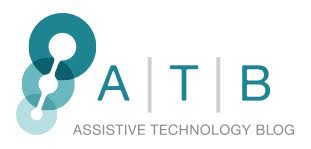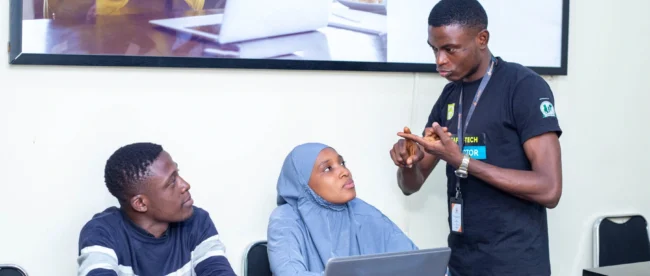Sign Language & Code: Deaf-in-Tech Nigeria’s Approach to Inclusive Tech Training
Imagine a classroom where the fluid movements of sign language unlock the complex logic of code. This is the scene at Deaf-in-Tech in Abuja, Nigeria, where facilitator Victor Oricha, who is Deaf himself, guides students like Umamatu Jiddah through the intricacies of programming. In Nigeria’s rapidly expanding tech sector – a major contributor to the GDP – opportunities for people with disabilities remain frustratingly scarce. Despite laws like the Discrimination Against Persons with Disabilities Act (2018), weak enforcement and societal biases often exclude qualified individuals, with advocates like Iquo Mkpang noting that applicants with disabilities may be ignored or treated merely as charity cases. This lack of access to both education (only 4.5% of children with disabilities attend formal schooling) and employment creates significant barriers for the Deaf community.
Responding directly to this challenge is Deaf-in-Tech, founded in 2022 by Dr. Arowolo Ayoola. Motivated by witnessing the struggles of a brilliant Deaf university friend who faced discrimination despite his qualifications, Dr. Ayoola envisioned a program to challenge the perception of people with disabilities needing “alms” instead of opportunities. Believing that “tech is a great equalizer,” Deaf-in-Tech provides specialized training in programming languages, Power BI, Microsoft Excel, and more, entirely through sign language and highly visual methods. Understanding that communication is often the primary barrier, not capability, the program offers comprehensive support, including laptops, transportation assistance, career coaching, and mentorship, creating a truly assistive learning environment. They’ve even launched an e-learning platform, DeafLearn, to extend accessible education further.
The impact is tangible and transformative. Since its inception, Deaf-in-Tech has trained over 1,000 individuals, supported Deaf tech founders, mentored hundreds, and helped organizations adopt inclusive policies. Graduates like Albert Amos Audu testify to its life-changing effect; after learning data analytics and crucial job-seeking skills, he secured a position as a data analyst, stating the program “showed me how to be seen” and gave him control over his career. Facilitator Victor Oricha emphasizes the importance of visual learning (“Sight is everything”), often starting with computer basics before diving into code. By removing the communication barrier, Deaf-in-Tech demonstrates the immense potential within Nigeria’s Deaf community, proving that with the right access and environment, anyone can master the language of technology.
Source: Reasons to be cheerful


Leave a comment